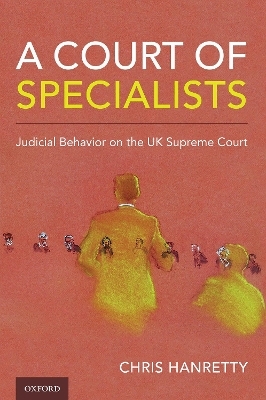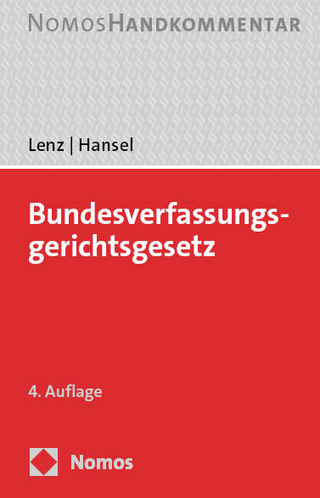
A Court of Specialists
Judicial Behavior on the UK Supreme Court
Seiten
2020
Oxford University Press Inc (Verlag)
978-0-19-750923-4 (ISBN)
Oxford University Press Inc (Verlag)
978-0-19-750923-4 (ISBN)
- Lieferbar
- Versandkostenfrei
- Auch auf Rechnung
- Artikel merken
This book offers the first quantitative study of decision-making on the UK Supreme Court. Covering the court's first ten years, it examines all stages of the court's decision-making process--from permission to appeal to the decision on the final outcome. The analysis of these distinct stages shows that legal factors matter. The most important predictor of whether an appellant will succeed in the Supreme Court is whether they've been able to convince judges in lower courts. The most important predictor of whether a case will be heard at all is whether it has been written up in multiple weekly law reports.
But "legal factors mattering" doesn't mean that judges on the court are simply identical expressions of the law. The nature of the UK's court system means that judges arrive on the court as specialists in one or more areas of law (such as commercial law or family law), or even systems of law (the court's Scottish and Northern Irish judges). These specialisms markedly affect behavior on the court. Specialists in an area of law are more likely to hear cases in that area, and are more likely to write the lead opinion in that area. Non-specialists are less likely to disagree with specialists, and so disagreement is more likely to emerge when multiple specialists end up on the panel. Although political divisions between the justices do exist, these differences are much less marked than the divisions between experts in different areas of the law. The best way of understanding the UK Supreme Court is therefore to see it as a court of specialists.
But "legal factors mattering" doesn't mean that judges on the court are simply identical expressions of the law. The nature of the UK's court system means that judges arrive on the court as specialists in one or more areas of law (such as commercial law or family law), or even systems of law (the court's Scottish and Northern Irish judges). These specialisms markedly affect behavior on the court. Specialists in an area of law are more likely to hear cases in that area, and are more likely to write the lead opinion in that area. Non-specialists are less likely to disagree with specialists, and so disagreement is more likely to emerge when multiple specialists end up on the panel. Although political divisions between the justices do exist, these differences are much less marked than the divisions between experts in different areas of the law. The best way of understanding the UK Supreme Court is therefore to see it as a court of specialists.
Chris Hanretty is Professor of Politics at Royal Holloway, University of London.
Preface
Chapter 1 Introduction
Chapter 2 Key concepts
Chapter 3 Who gets heard? Permission to appeal decisions
Chapter 4 Panel size
Chapter 5 Panel formation
Chapter 6 Who writes?
Chapter 7 Who dissents?
Chapter 8 Political patterns of dissent
Chapter 9 Who wins?
Chapter 10 Conclusions
References
| Erscheinungsdatum | 02.04.2020 |
|---|---|
| Verlagsort | New York |
| Sprache | englisch |
| Maße | 236 x 145 mm |
| Gewicht | 612 g |
| Themenwelt | Recht / Steuern ► Allgemeines / Lexika |
| Recht / Steuern ► EU / Internationales Recht | |
| Recht / Steuern ► Öffentliches Recht ► Verfassungsverfahrensrecht | |
| ISBN-10 | 0-19-750923-1 / 0197509231 |
| ISBN-13 | 978-0-19-750923-4 / 9780197509234 |
| Zustand | Neuware |
| Haben Sie eine Frage zum Produkt? |
Mehr entdecken
aus dem Bereich
aus dem Bereich
Buch | Softcover (2024)
C.F. Müller (Verlag)
CHF 27,95


